Can what you eat today determine the future of our planet tomorrow? Discover how choosing veganism might be the unsung hero in the fight against Earth’s greatest environmental challenges.

In my 15 years of diving deep into the world of sustainable eating, I've come across a pivotal question many times: "How does being vegan help the environment?" The planet's health has never been more at the forefront of our conversations, especially with the looming threat of climate change. Every day, more individuals are connecting the dots between their plate and the planet, realizing that the food they consume plays a crucial role in the broader environmental narrative. Join me as we explore this pressing topic, looking into the profound impacts of our dietary choices.
The Relationship Between Veganism and Sustainability
Veganism and sustainability are deeply intertwined concepts, both focusing on reducing harm to our planet and its inhabitants. At the heart of veganism is the choice to abstain from animal products, driven by ethical, health, and environmental reasons. From an environmental perspective, the vegan diet emerges as a champion of sustainability.
Animal agriculture presents significant environmental challenges. It's a leading source of greenhouse gas emissions, contributing to climate change at an alarming rate. It demands vast land resources, often resulting in deforestation, habitat destruction, and biodiversity loss. The water footprint of livestock is staggering, with animal products consuming far more water than plant-based alternatives. Additionally, animal farming contributes to pollution, be it from waste runoff leading to oceanic dead zones or the release of harmful gases affecting air quality.
Switching to a sustainable diet, such as a vegan one, means supporting a system that requires fewer resources—land, water, and energy. It also means a reduced carbon footprint and less strain on our ecosystems. Veganism, in essence, promotes a way of life that is more in harmony with our planet, making the shift towards it a powerful step in the journey of sustainability. By embracing veganism, individuals make a conscious decision to support a more sustainable, ethical, and environmentally friendly future.
15 Reasons Why Going Vegan Is Good for the Environment
1. Reduction in Greenhouse Gas Emissions
A pressing global concern is the rising levels of greenhouse gas emissions, and animal agriculture sits at the center of this challenge. This sector alone accounts for a considerable chunk of worldwide emissions.
Particularly culpable are cows, notorious for producing methane during digestion. What makes methane especially troubling is its potency; it's estimated to be 25 times more effective at trapping heat in the atmosphere than carbon dioxide over a 100-year period.
By adopting a vegan lifestyle, the demand for meat and dairy, the primary sources of such emissions, dramatically drops. Fewer animals raised for consumption mean fewer emissions. Now, imagine the collective impact if a significant portion of the global population chose a vegan path.
Such a shift wouldn't just be a dietary preference—it'd be a monumental stride toward curbing climate change, ensuring a cooler and more sustainable future for the next generations.
2. Decrease in Land Use and Deforestation
One of the often-underestimated consequences of our dietary choices is the sheer land area they command. Animal agriculture demands vast stretches of land, both for rearing animals and cultivating crops to feed them. This has led to rampant deforestation, with forests—our planet's vital lungs—being razed to accommodate the ever-growing demand for meat.
The Amazon rainforest, often termed the 'Earth's lung,' is a poignant example. It's alarmingly diminished in recent years, with the meat industry being a prime driver of this degradation.
Conversely, plant-based diets stand out as land-efficient. The land area needed to produce plant-based food to nourish one person can support several more when not routed through livestock. Adopting a vegan diet means championing a system that thrives on less land, helping conserve forests, protect wildlife habitats, and maintain the delicate ecological balance our planet relies on.
Read More:
3. Saving Water Resources
Water, a resource we often take for granted, is at the heart of many environmental challenges. Its scarcity is becoming an increasing concern in many parts of the world. One significant drain on our water resources is animal agriculture.
Raising livestock, especially cattle, is a water-intensive affair. The sheer volume of water needed for drinking, sanitation, and growing feed crops for these animals is staggering. To put it into perspective, the production of a single pound of beef can guzzle up to 2,400 gallons of water, a number that dwarfs the requirements of most plant-based foods. Grains, fruits, and vegetables generally have a much lower water footprint.
By transitioning to a vegan diet, not only do you minimize your direct consumption, but you also significantly cut down on the indirect water usage associated with your food choices. In a world grappling with diminishing freshwater reserves, such a choice makes both environmental and ethical sense
4. Reduction in Energy Consumption
In today's world, where the specter of dwindling energy resources looms large, the way we produce our food plays a pivotal role. Animal agriculture emerges as an energy glutton. The journey from farm to plate for an animal product is layered with energy-consuming stages. Whether it's the production of animal feed, the operations of maintaining large-scale livestock farms, processing meat in factories, or transporting products over vast distances, every step demands substantial energy, primarily derived from fossil fuels.
On the flip side, plant-based foods have a comparatively modest energy appetite. Their cultivation, processing, and transportation typically consume fewer resources.
Opting for a vegan diet translates to supporting a more energy-efficient food system. This not only reduces the strain on our already stretched energy resources but also results in fewer greenhouse gas emissions, making our dietary choices a linchpin in the broader goal of environmental sustainability.
5. Prevention of Species Extinction
The rich tapestry of life on our planet, with its myriad species, is under threat. A significant factor behind this alarming decline in biodiversity is habitat destruction for animal agriculture.
Expansive stretches of wilderness, forests, and grasslands are continually transformed into grazing pastures or crop fields exclusively for livestock feed. As these habitats vanish, countless species find themselves displaced, with many facing the grim possibility of extinction. These aren't just obscure creatures but often keystone species whose survival impacts entire ecosystems. Beyond habitat loss, animals frequently face direct threats from human activities, be it roadkills, hunting, or conflicts over resources.
Switching to a vegan diet can be a powerful countermeasure against this trend. By reducing the demand for animal products, we can reduce the pressure on land, ensuring vast areas remain untouched and preserved. In essence, going vegan is a stance not just for animals on farms, but for the entirety of Earth's biodiversity.
6. Mitigating Ocean Dead Zones
The beauty and diversity of our oceans are under silent siege from an unseen enemy: agricultural runoff.
Farms, especially those related to animal agriculture, are a major source of nutrient-rich waste. When rain washes these excess nutrients—often nitrates and phosphates—from fields into rivers and eventually oceans, it sets off a domino effect. These nutrients fuel explosive growths of algae, known as algal blooms. Once these algae die and decompose, they consume vast amounts of oxygen, leading to hypoxic conditions where oxygen levels drop perilously low.
The result? Large swathes of ocean where marine life struggles to breathe, aptly termed "dead zones." These zones are devoid of most marine life, turning once-thriving underwater ecosystems into barren wastelands.
By choosing a vegan diet, we reduce the demand for animal products, which in turn can lessen the scale of animal agriculture and its associated runoff. Thus, every vegan plate is a small step toward healthier, more vibrant oceans.
Read More:
7. Decreasing Animal Waste
A lesser-discussed but profound consequence of large-scale animal agriculture is the staggering amount of waste it produces. Imagine the thousands upon thousands of animals on a factory farm, each producing waste daily.
Unlike the biodegradable remnants from plant-based sources, animal waste is a complex mix fraught with potential hazards. It contains residues of hormones and antibiotics—commonly used in industrial livestock production—as well as potentially harmful bacteria like E. coli.
When not managed correctly, which is often the case given the sheer volume, this waste can leach into waterways. Once in these ecosystems, the contaminants can wreak havoc on aquatic life, disrupting natural balances and harming species.
For humans, the risks are direct. Contaminated water can be a source of illness, with outbreaks of diseases traced back to pollutants from animal agriculture. Thus, shifting toward a vegan diet not only lessens the demand for animal farming but also directly contributes to cleaner, safer environments for both wildlife and humans.
8. Reducing Overfishing
Our oceans, once considered boundless, are facing an alarming decline in their bounty, and a primary culprit? Overfishing.
As the global appetite for fish has surged, fishing practices have intensified, often exceeding the natural reproductive capacities of many fish populations. This unsustainable plundering has driven several species to the brink, with some, like certain tuna species, teetering dangerously close to extinction.
But the ripple effects don't stop there. When key species are reduced or removed, entire marine ecosystems can be thrown out of balance. Predators lose their prey, and smaller fish can multiply unchecked, leading to unforeseen consequences for the oceanic food web.
By adopting a vegan diet, individuals make a conscious choice to sidestep this cycle of depletion. Avoiding fish consumption means directly reducing demand, allowing our oceans a much-needed respite to heal, recover, and hopefully, in time, thrive once again.
Read More:
9. Lowering Air Pollution
Beyond the often-discussed methane emissions, livestock farms contribute significantly to air pollution through the release of other harmful substances, notably ammonia.
Ammonia, often originating from animal waste and fertilizers, doesn’t just linger benignly in our atmosphere. Once airborne, it can combine with other pollutants, such as nitrogen oxides and sulfates, giving rise to fine particulate matter (PM2.5).
This particulate matter, microscopic yet insidious, has profound implications for both environmental and human health. When inhaled, PM2.5 can penetrate deep into human lungs, leading to a host of respiratory conditions and exacerbating existing health issues.
Moreover, these particles can travel vast distances, spreading their impact far beyond their point of origin and even contributing to climate change by affecting atmospheric temperatures and precipitation patterns.
By choosing a vegan diet, we essentially pull support from an industry that is a notable contributor to air pollution, thereby advocating for cleaner air and a healthier planet.
10. Reducing Soil Erosion
Soil, often overlooked, is one of the most vital components of our ecosystem. It anchors our food system, acting as the nurturing medium for almost everything we eat. Animal agriculture, especially when practiced without regard for sustainable land management, often accelerates soil erosion.
Overgrazing by livestock strips land of its vegetative cover, leaving soil vulnerable to being washed or blown away. Similarly, deforestation for pasture or feed crops exposes land, compromising its integrity. Once degraded, restoring soil health is a long and challenging process.
On the other hand, sustainable crop farming, especially practices like crop rotation and agroforestry, not only prevents erosion but can also enrich the soil, enhancing its fertility.
By adopting a vegan diet, we signal our preference for a food system that respects and preserves the very foundation of its existence: the soil, ensuring a legacy of fertile land that can sustain future generations.
11. Preserving Biodiversity
Biodiversity is the heartbeat of our planet, a testament to the rich variety of life that has evolved over eons. Each species, no matter how insignificant it might seem, plays a role in the intricate web of life. However, the rise of industrial animal farming and associated practices, like mono-cropping for livestock feed, has posed serious threats to this biodiversity.
Expansive fields of a single crop variety replace diverse habitats, creating ecological voids. This homogenization not only diminishes the number of species but also weakens ecosystems, making them less resilient to disturbances like diseases or climate fluctuations.
A plant-based diet, on the other hand, inherently champions diversity. Different plants have different nutritional profiles, and thus, a varied vegan diet often translates to diverse crop cultivation.
By choosing this path, we vote for a world teeming with life, ensuring that the delicate balance of nature remains undisturbed and vibrant for ages to come.
12. Reducing the Spread of Antibiotic-Resistant Bacteria
The modern marvel of medicine, antibiotics, which once revolutionized healthcare, is under threat, and surprisingly, one of the culprits lies in our food system.
To combat diseases and promote growth, many factory farms routinely feed antibiotics to livestock. This incessant use creates an environment where bacteria are exposed to these drugs regularly, leading to the evolution of strains that can resist them.
These antibiotic-resistant bacteria, or "superbugs" as they're often called, don't just stay confined to farms. Through various channels, they can find their way into human populations, turning once-treatable infections into formidable health challenges.
As these superbugs proliferate, our arsenal of effective antibiotics dwindles, setting the stage for a potential healthcare crisis.
By adopting a vegan diet, we actively reduce the demand for animal products and, consequently, the need for such practices in animal farming. In essence, going vegan is not just an environmental or ethical stance but also a proactive step toward safeguarding public health.
13. Reduction in Transport Emissions
Transportation is a silent but significant contributor to the environmental footprint of our food. When we talk about animal agriculture, we're considering a complex web of transportation.
From moving young animals to different facilities as they grow, transporting vast amounts of feed to meet their dietary needs, to finally shipping the processed products to stores—every step adds miles and emissions. These journeys often span continents and are driven by a global demand for specific animal products.
Plant-based foods, conversely, generally have a shorter supply chain. And as the trend towards locally-sourced and farm-to-table produce gains momentum, the distance our vegan food travels decreases even further.
This reduction in transportation means fewer emissions from vehicles, less road congestion, and a lower dependency on fossil fuels. So, when you opt for a plant-based meal, especially one sourced locally, you're effectively cutting down on the carbon trail your food leaves behind, making for a greener plate and planet.
14. Supporting Ethical Farming Practices
At the intersection of ethics and environment lies our food choices, and nowhere is this more evident than in the comparison between factory farming and plant-based agriculture.
Factory farms, driven by profit margins, frequently sideline the well-being of the animals they house. This isn't just a moral issue; the intensive practices employed often have dire environmental consequences, from waste runoff to overuse of resources.
Conversely, a shift toward plant-based diets nudges the agricultural sector toward methods that are not only kinder but often more in harmony with nature. Ethical farming, which respects life and land alike, tends to adopt practices that preserve soil health, reduce water waste, and minimize chemical usage.
By supporting a vegan diet, we're casting a vote not just against the cruelties of factory farming but also in favor of an agricultural system that aligns more closely with the natural world, benefiting the environment and future generations.
15. Encouraging Sustainable Innovation
The increasing global interest in veganism isn't just a dietary shift—it's a powerful catalyst for change in the very way we approach food production. As demand for vegan products soars, it's paving the way for groundbreaking innovations in sustainable food technology.
Enter plant-based meat substitutes, which are not just imitating the taste and texture of meat but doing so with a fraction of the environmental footprint. Innovations like these are reimagining the food landscape, harnessing cutting-edge science, and technology to create products that satiate our appetites while being kinder to the planet.
Beyond meat substitutes, we're seeing advancements in areas like vertical farming, plant-based dairy, and even lab-grown meats. Each of these innovative steps promises to further reduce water use, land degradation, and greenhouse gas emissions.
By adopting and supporting a vegan lifestyle, we're not just making a personal choice; we're fueling a wave of sustainable innovation that has the potential to redefine and reshape the future of food.
Conclusion: The Future of Food and Our Planet
Every meal, every choice, carves out the narrative of our planet's future. By understanding the profound impacts of our diets, it becomes clear: the shift towards veganism isn't just about personal health but the health of our Earth. Each vegan choice is a step against deforestation, water wastage, and harmful emissions. But change begins at the individual level. As stewards of this planet, let's recognize the power on our plates. It's a call to all: reconsider your next meal, embrace plant-based alternatives, and be an active participant in scripting a greener tomorrow.

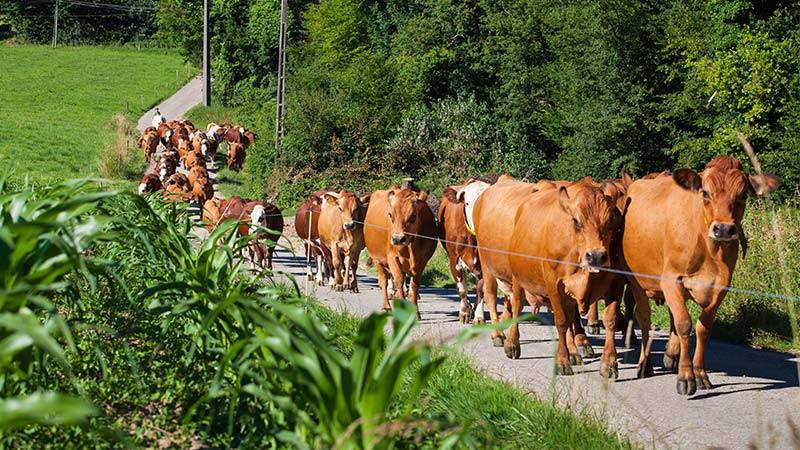

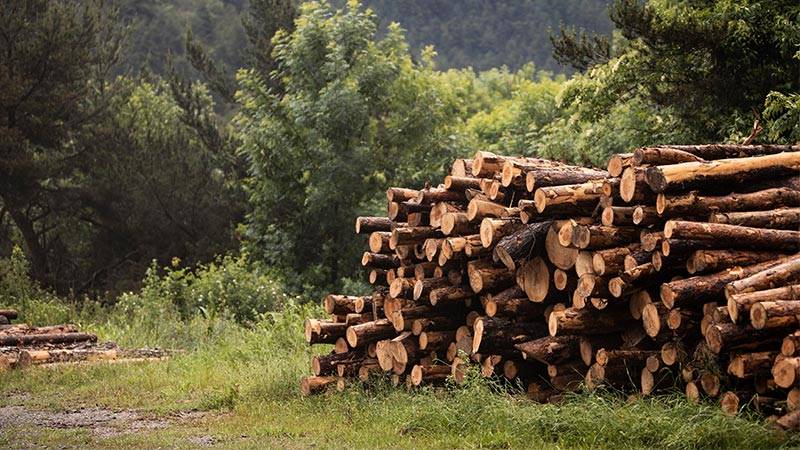

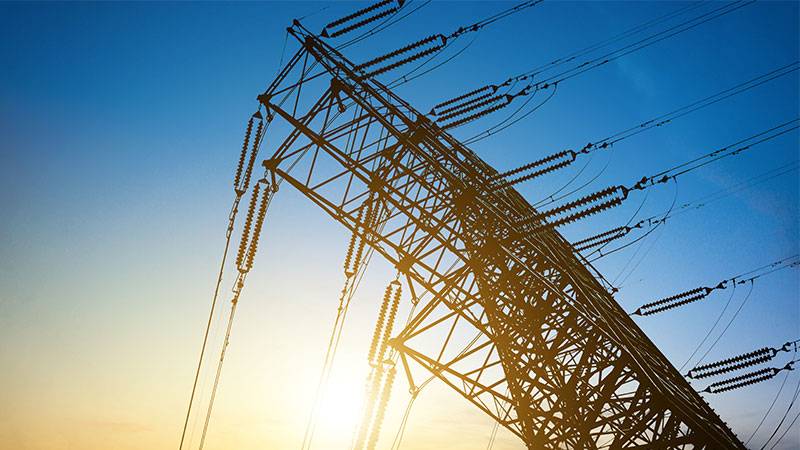
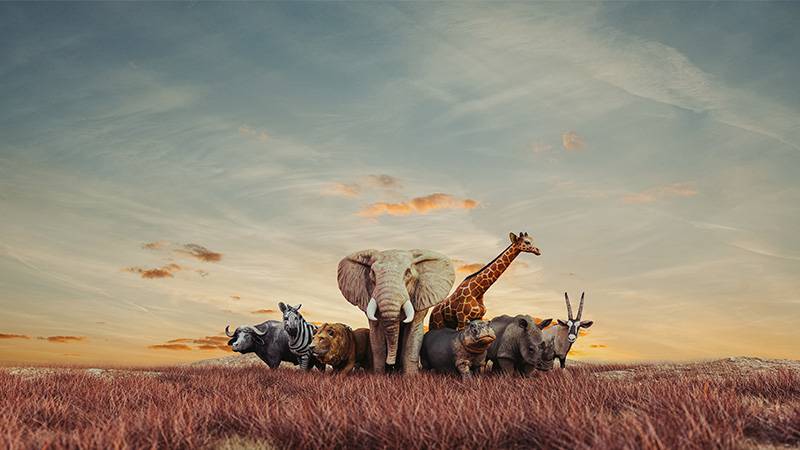
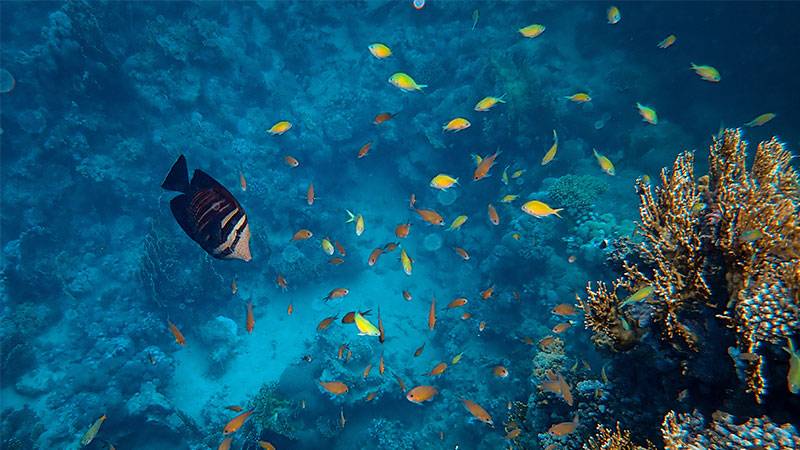
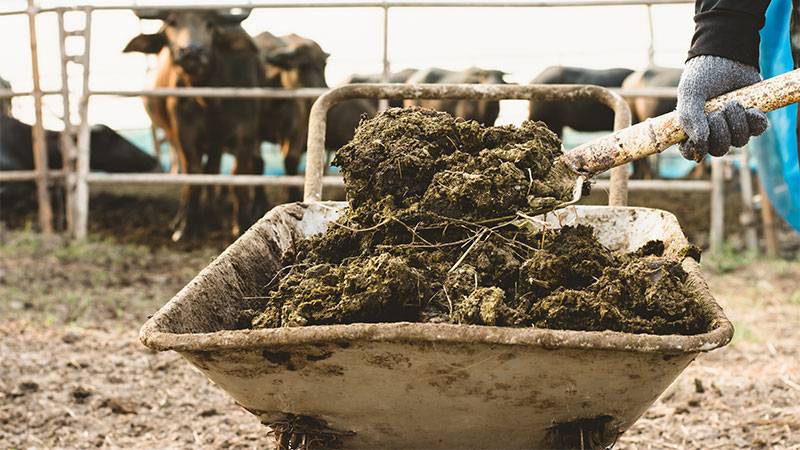

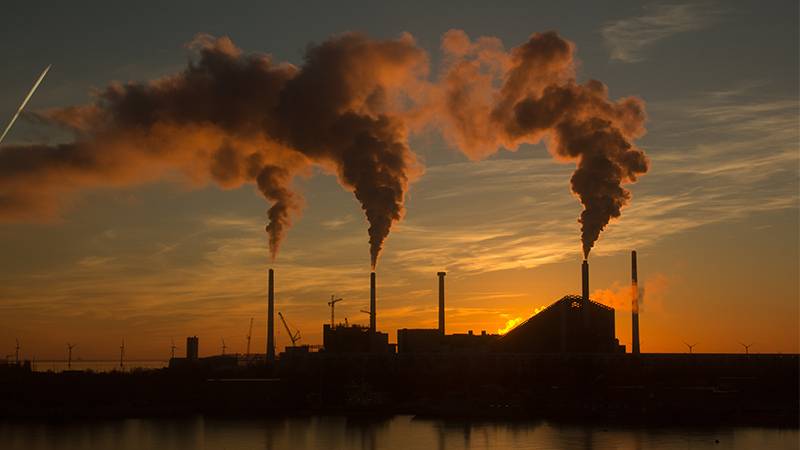
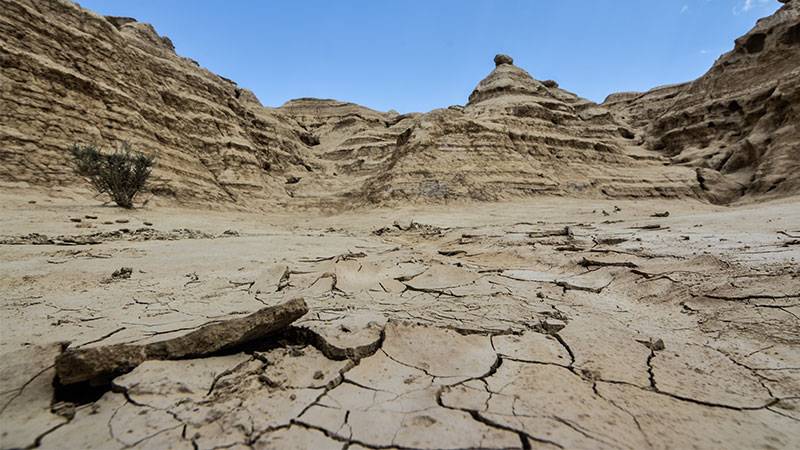
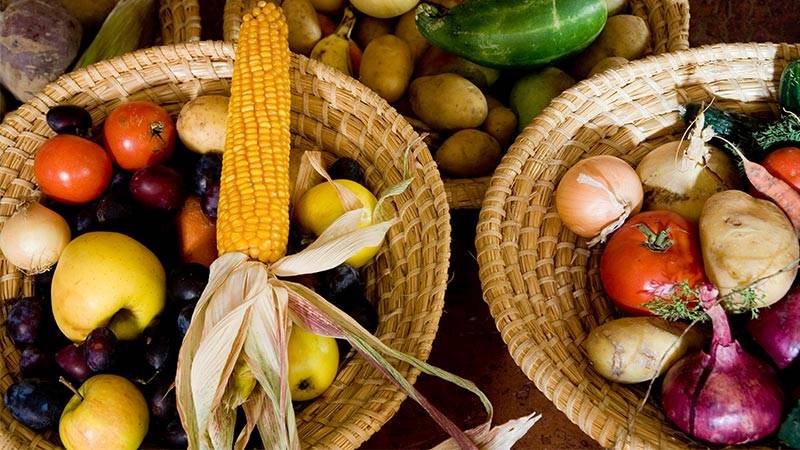


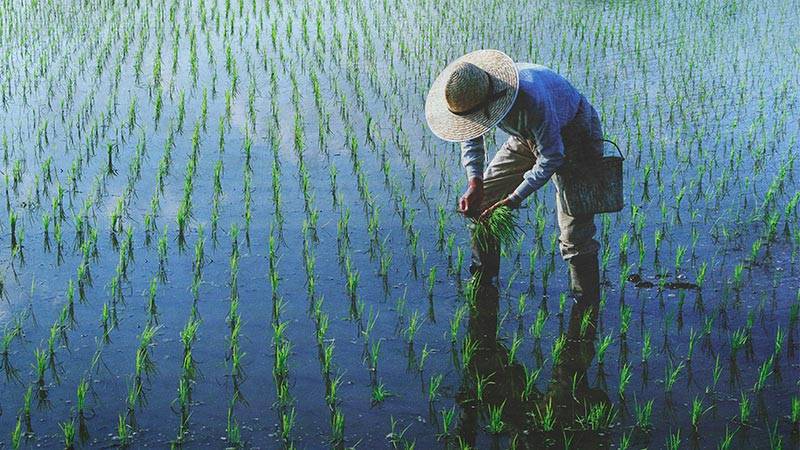










can u next time add cation.. it will help in the researches.. thanks!